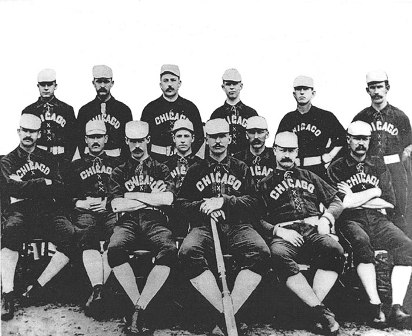Among the reasons Rube Levy remained one of the most popular figures in West Coast baseball was his refusal to accept offers to play for teams outside of California. The San Francisco Chronicle said:
“With all his vast experience on the baseball diamond, the young man has never ventured beyond the confines of the state in which he was born…Time and time again Rube has received princely offers from Eastern magnates bidding against each other, but he always declined their advances. He knew that California needed him, and he said he never would desert the state. This sacrifice on his part is what has endeared Reuben in the hearts of the populace and why he is always greeted with plaudits.”
Levy disappeared from professional rosters after the 1896 season, but appears to have remained active as a player and umpire in semi-pro baseball in San Francisco.
Levy, along with his brother David who also played professional ball on the West Coast in the 1880s and 90s, also worked for the San Francisco Fire Department. A city report from 1898 shows the brothers working out of Engine Company 14 on McAllister Street. Reuben, badge number 187, was an assistant foreman, David, number 184, a hoseman.
In 1899 he became an umpire in the California League. Early in the season The Sporting Life said “he is not altogether conversant with the playing rules,” and later said he “is umpiring in style, but is a little off on balls and strikes.”
The following season Levy returned as a player with the San Francisco Brewers in the California League. On April 2, 1900 The Chronicle, which incorrectly said he had been away from professional ball for seven years, said of the crowd:
“It applauded every move made by Rube Levy, who played out in the western prairie for San Francisco, and made one hit and four putouts and otherwise distinguished himself before rooters who used to yell for him years ago. Old timers referred to the epoch when Rube used to be the darling of the kindergarten bleachers at the old Haight Street Grounds, when 2000 shrill-voiced youngsters, at 10 cents a voice used to go into ecstasies over Rube.”
The article said of the 37-year-old, “(He) chased flies and caught them as cleverly as though he were Rube’s grandson.”
Levy appeared in 87 games in 1900, hitting .205, and returned to umpiring the following season.
In 1903 he joined the newly formed Pacific Coast League. It’s more likely he acquired the position because of his brother-in-law, rather than based on his reputation as an umpire. Levy’s wife was the former Rebecca Fisher, sister of Mike “Mique” Fisher one of the league’s founders and owner/manager of the Sacramento Senators.
The reviews of his work as an umpire never improved, The San Francisco Call said about one game: “He did not give either nine the worst of it, He was just impartially rank.” The Los Angeles Times was especially critical of his work, calling him “notoriously incompetent.”
He managed to remain on the league umpire staff through the 1904 season.
The Spokane Daily Chronicle summed up his career as an arbiter:
“He was anything but a success as an umpire, but he had the reputation of being one of the few men in the business who refused to get mad. The players started in time and again to bait him and get him mad, but Rube always preserved his abundant good humor.”
After the 1904 season Levy opened a cigar store on Fillmore Street in San Francisco. On February 8, 1907 the 42-year-old Levy died after a brief illness, his death was attributed to a brain tumor.
The Sporting Life said of his death:
“(T)here was never a more popular ball player in San Francisco, and of whom it can be truly said that all men were his friends.”




One Response to ““All Men were his Friends””